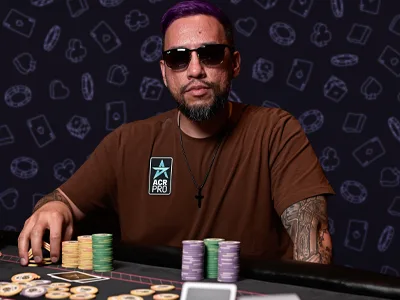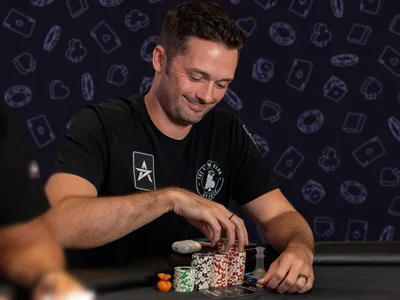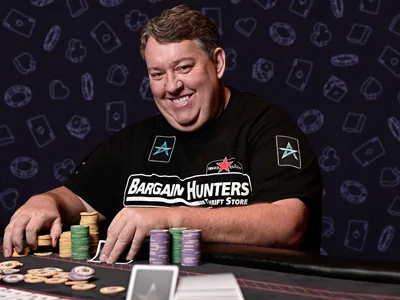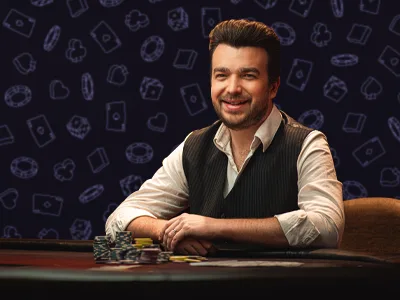Even when the cards aren’t falling your way, you can still influence the table dynamic Cold decks in Texas Hold’em—stretches where players consistently receive poor hands—can affect more than just the player experiencing the drought. While most focus on how cold runs damage a player’s momentum, it’s equally important to recognize how they shift opponents’
Category: Poker Strategy
Poker Player Types – Simple Version
In this installment of the ACR Pros Playbook, we’re taking a step back from solvers and deep theory to focus on a skill every poker player needs: opponent profiling. ACR Pro Drew Gonzalez breaks down the four player archetypes you’ll run into at nearly every table—and how to adjust your game for maximum edge. If
Understanding and Utilizing Bet Sizing in Short Deck Hold’em
By mastering bet sizing, you can exploit the smaller deck and and maintain control over the size of the pot Short Deck Hold’em, also known as Six-Plus Hold’em, is a variation of Texas Hold’em where the deck is reduced to 36 cards by removing the 2s, 3s, 4s, and 5s. This unique twist on the
Building a Strategy for Rebuy and Add-on Stages in PLO
Rebuy events are a great opportunity to build a stack, but success comes from adapting your aggression In Pot-Limit Omaha (PLO) tournaments that offer rebuys and add-ons, building a sound strategy early can make a significant difference in your tournament success. Unlike freezeouts, where every chip lost is final, rebuy formats give you more flexibility
Mucking in Live Poker Tournaments: Strategies and Considerations
Mastering the art of mucking is about knowing when to let go and protect your chips Mucking in live poker tournaments is an essential concept that often goes overlooked, yet it plays a pivotal role in strategic decision-making. The term “mucking” refers to folding your cards face-down when deciding not to continue with a hand.
How Verbal Interaction Can Inform Your Heads-up Texas Hold’em Decisions
Verbal interactions in heads-up Texas Hold’em serve as an additional layer of information In heads-up Texas Hold’em, verbal interactions can be a crucial part of gaining insight into your opponent’s strategy and mindset. Unlike full-table play, where players are often more guarded in their behavior, heads-up play opens up opportunities for psychological warfare and subtle
Adjusting Your Overall Strategy When Facing a Cold Deck in Texas Hold’em Tourneys
Watch who’s opening light, who’s flatting too wide, and who folds to pressure Running into a cold deck in a Texas Hold’em tournament can be one of the most frustrating experiences for any player. A cold deck means you’re getting consistently poor hands and not hitting flops, which can test both patience and strategy. However,
Maintaining and Building Friendships in Poker
Poker may be a solo grind, but that doesn’t mean your life has to be. In this week’s feature, ACR Pro Chris Moorman takes a heartfelt detour from standard strategy talk to open up about something every long-term grinder faces: staying connected. In this article, Chris shares personal lessons from 20 years on the road—how
Adjusting Your Strategy for Multiway Pots in Short Deck
Prioritize strong hands, tighten your range and reduce bluff frequency in Short Deck poker In Short Deck Hold’em, multiway pots are more common than in regular Texas Hold’em due to increased hand equities and the absence of low-ranked cards (2s through 5s). Since players are more likely to connect with the board, it’s crucial to
Short-Handed vs. Full-Table Strategy in PLO
Ultimately, success in PLO depends on reading the table and adjusting accordingly Playing Pot-Limit Omaha (PLO) at a short-handed table versus a full-ring table requires distinct strategies due to differences in hand ranges, player tendencies, and pot dynamics. While the core mechanics of PLO remain the same, your approach should shift significantly based on how
Mucking as a Strategic Move in Texas Hold’em: How and When To Implement
Use mucking as a calculated move and it can quietly become part of a winning strategy In Texas Hold’em, mucking is often seen as a routine act—folding a hand you don’t want to show. But in certain moments, it can become a subtle but effective part of a larger strategy. Knowing when and how to
Endgame Heads-up Strategies: When To Push and When To Fold
Mastering the timing of aggression and caution in heads-up play separates good players from champions In tournament poker, reaching heads-up play marks the final and most intense stage. With just two players remaining, every decision can significantly alter the outcome. Understanding when to push and when to fold in the endgame is key to sealing














